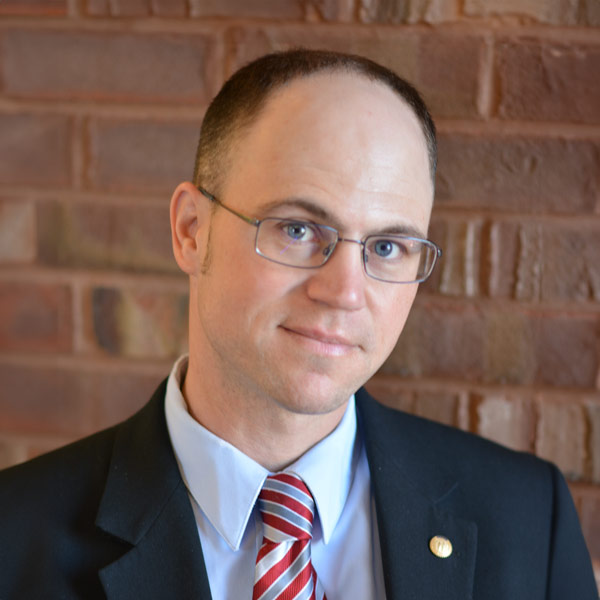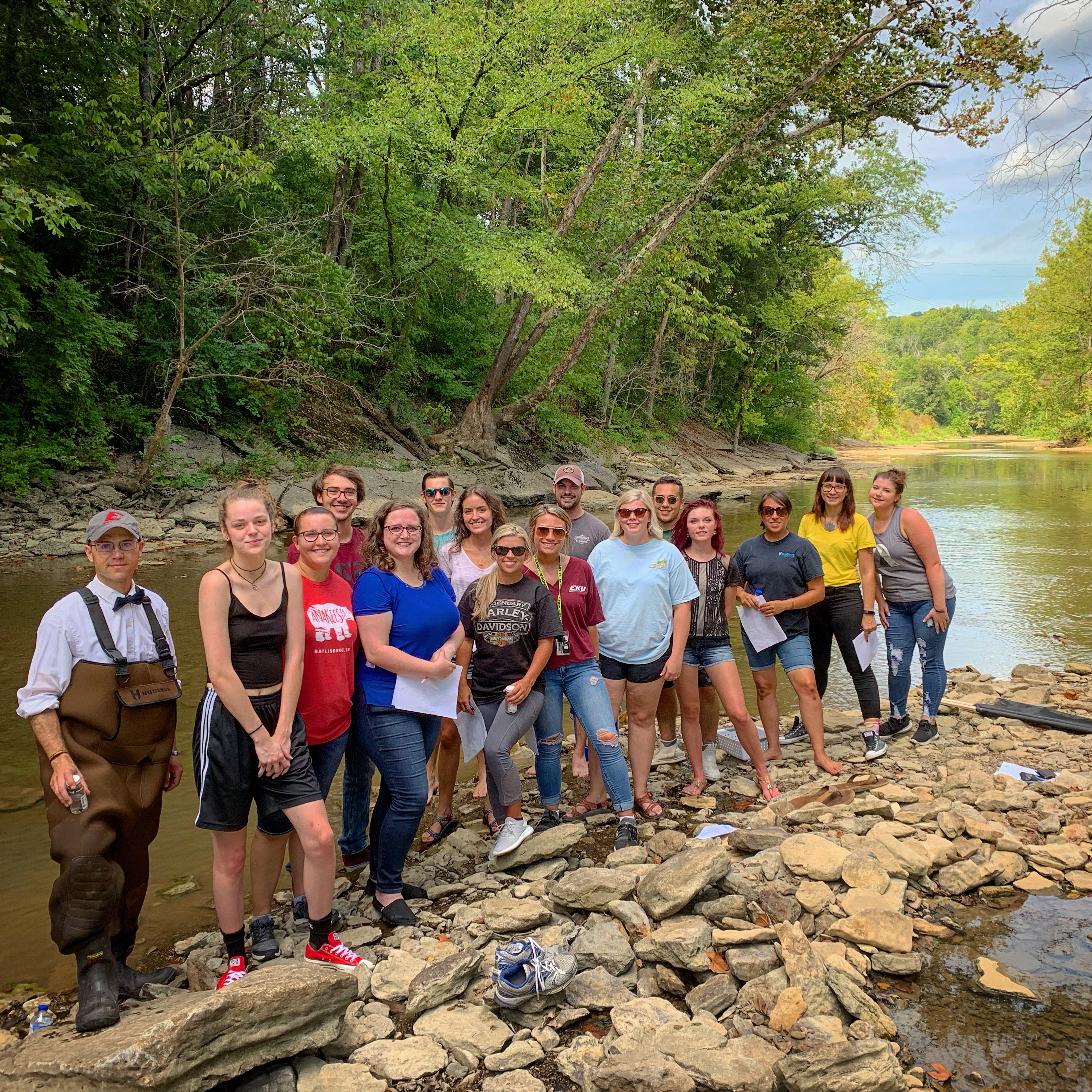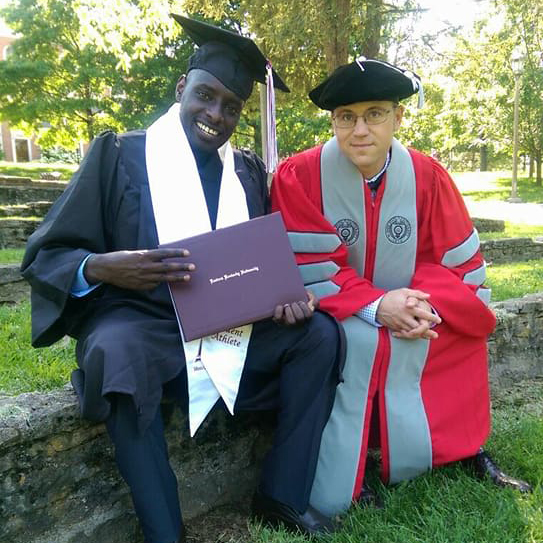Q&A: Alumnus fueled by passion for environmental science
Jason Marion MS ’10 PhD ’11 reflects on his career in academia.
By Kristen Mitchell

Meet College of Public Health alumnus Jason Marion MS ’10 PhD ’11 , who shares his love for environmental health science in the classroom as an associate professor at Eastern Kentucky University.
Marion discusses how public service guided his interest in the field and the impact of his time at Ohio State.
Question and Answer
What drew you to work in environmental health science?
From playing in the creeks in southern Ohio and attending junior ranger programs with the Army Corps of Engineers at a local lake, I was always fascinated by water — not just the movement and flow of water but also the immense biodiversity that existed in the streams.
Through my undergraduate capstone course, I was exposed to influential texts like Theo Colburn’s “Our Stolen Future” and Rachel Carson’s “Silent Spring.” I started to think about how environmental quality was not only an ecological problem or a biodiversity problem, but a human health problem. Through a summer training at U.S. EPA’s Office of Research and Development in Cincinnati, I was exposed to a lot more at the interface of ecological and human health.

How did your time at the College of Public Health shape your career path?
Ohio State and CPH gave me the opportunity to have a rich and practical academic experience while also plugging me into a diverse network of peers, community leaders and researchers. I developed long-lasting relationships with professors that still exist today. Because of my ability to be involved in collaborations around infectious disease prevention and working closely with CPH faculty including Jiyoung Lee, Michael Bisesi and Armando Hoet, I’ve been fortunate to be an influential voice for global environmental health and One Health among environmental health practitioners.
You worked with the Ohio Department of Natural Resources (ODNR) for 13 years, including during your time at CPH. How did your experiences there guide your interests?
During my time with ODNR prior to attending Ohio State, the majority of my work experience was with the state park system and the Civilian Conservation Corps. While working with Ohio State Parks, we frequently encountered issues associated with water quality at our lakes and challenges presented by an aged wastewater infrastructure. Harmful blue-green algae blooms and elevated E. coli levels at our lakes were periodic and seemed to have seasonality. While working in a variety of positions maintaining our parks and working with park visitors, I was keenly aware of ODNR’s efforts fostering interagency and community engagement to improve Ohio’s water quality from the inland lakes all the way to Lake Erie.
What do you like most about being a professor?

Initially, what I enjoyed the most was the ability to be in a paid position among a larger community of scientific professionals where problem solving, discovery and curiosity are valued in respect to shared aims to improve the health of our communities. Now, though, what I celebrate most is seeing the career and life transformations of former students as they emerge into leaders and professionals in their fields.
The students enrolled in my classes are often coming from humble places. Now, a decade removed from completing their undergraduate degrees, some students are leaders in the military, industry, state public health agencies and much more. It is those amazing stories of life’s victories that I like most about being a professor.
You’re a member of the College of Public Health Alumni Society Board of Governors. Why did you want to give back in this way?
As a student, there were CPH alumni who gave their time for me and fellow students and they were good to us. I appreciate the ability as an alumnus to work with CPH on the issues and topics most relevant for today’s students and alumni.
Additionally, it is possible I owe much of my quality of life — and possibly my life — to CPH and The Ohio State University Comprehensive Cancer Center – Arthur G. James Cancer Hospital and Richard J. Solove Research Institute. It was Randy Harris’s cancer epidemiology class where I learned about early detection and the benefits of swift action in cancer treatment. I also learned people like me, men from Appalachian Ohio, were least likely to seek medical attention when cancer first rears its head. His course and his wisdom inspired me to obtain an early diagnosis for an enlarged lymph node and prepared me for my successful treatment for Hodgkin’s Lymphoma at The James.
What advice do you have for current public health students?
Of greatest value to me was having a strong social network made possible through the students in my CPH classes and my peers through student organizations at Ohio State. Only at a university are there so many organizations and students who are so open to building friendships and personal relationships that are not just built on professional networking.
About The Ohio State University College of Public Health
The Ohio State University College of Public Health is a leader in educating students, creating new knowledge through research, and improving the livelihoods and well-being of people in Ohio and beyond. The College's divisions include biostatistics, environmental health sciences, epidemiology, health behavior and health promotion, and health services management and policy. It is ranked 22nd among all colleges and programs of public health in the nation, and first in Ohio, by U.S. News and World Report. Its specialty programs are also considered among the best in the country. The MHA program is ranked 5th and the health policy and management specialty is ranked 21st.